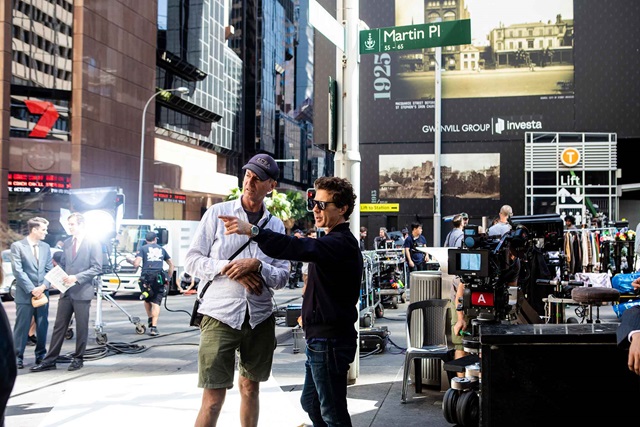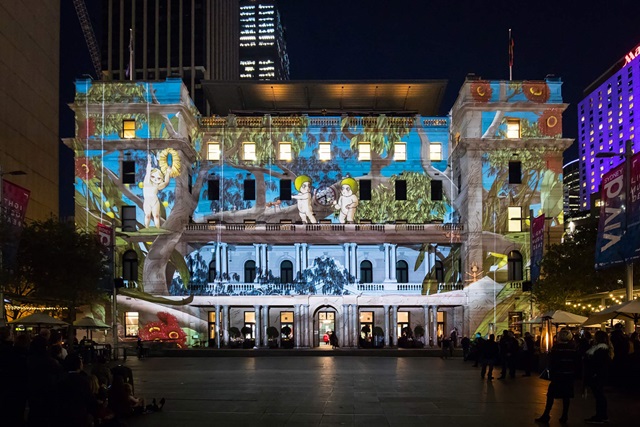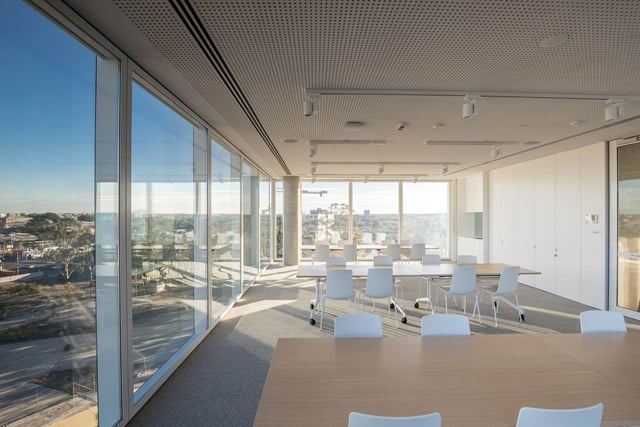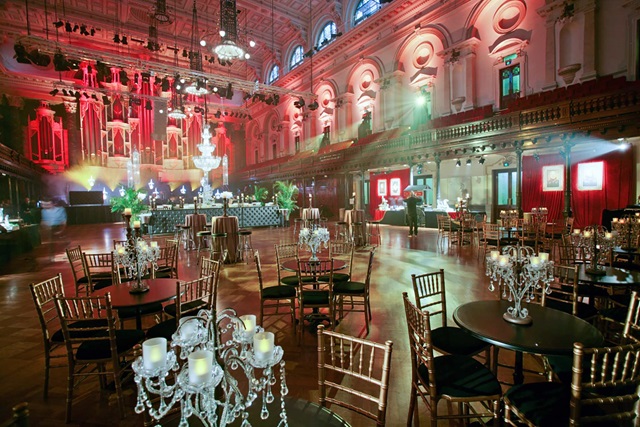Apply for a filming or photography permit
You need to request permission before your shoot begins in the City of Sydney area.
When you need to do this
To film or photograph on City of Sydney-owned or controlled land, you’ll need our permission.
- A permit is typically needed for any filming or photography carried out on City of Sydney land that is not purely for personal or private use. This includes fashion shoots, TV programs, commercials, B-roll, student film projects and major studio productions.
- A permit is generally not needed for things like same-day wedding photography, but it is your responsibility to ensure approval is not needed.
City of Sydney land includes outdoor areas such as footpaths, roads, parks and other open spaces.
Need a hand?
Read our guide, then contact a film liaison officer.
What you need to do
-
Check what approvals you need
Approval is required to film or photograph on public land. Our government landowners map shows which areas require permission from the City of Sydney and other authorities.
If you’re filming on private property, with no activity on City of Sydney public land and have no parking permit requirements, you don’t need to apply for our consent.
Talk with a film liaison officer
We encourage you to contact us at the earliest time before applying on 02 9265 9333 or [email protected]. We can advise the best process to follow, and provide guidance on who you need to notify, as well as any further requirements like parking and insurance.
-
Determine your application category
Fees and lead times are determined by the size of your production.
- Ultra-low impact
- No application fee
- Less than 10 crew
- Maximum of one camera, one light, one piece of sound equipment and one tripod – no other equipment is permitted
- Must be purely a piece to camera located in a park, open public space or footpath
- No activities on any open roadways, including laneways or other areas with no useable footpath
- Production should not require parking, traffic control or road closures and should not affect people walking, businesses or residents
- Low impact
- 11 to 25 crew, no more than 4 trucks and vans, minimal equipment and lighting, small unit base, usually one to 2 locations.
- Medium impact
- 26 to 50 crew, maximum 10 trucks, some equipment (including dolly, jibs), unit base, maximum 4 locations.
- High impact
- More than 50 crew, more than 10 trucks, significant construction, extensive equipment, large unit base.
- Parking only
- When filming on private property and parking is required.
-
Refer to the fees and charges
-
Prepare your supporting information
Information you provide must be clear, detailed and honest to help us make an informed decision. It must include a specific equipment list, an accurate assessment of the number of vehicles and crew and realistic descriptions of activities and timeframes.
-
Complete the application form
- Ultra-low impact applications: require a lead time of at least 2 full business days.
Apply now for ultra-low impact filming and photography
- Low-high impact applications: require a lead time of at least 5 full business days
- Low-high impact applications requiring road closures: require a lead time of at least 15 full business days
- Parking-only applications: require a lead time of at least 5 full business days
Apply now for all other filming and photography permits
Note, photography applications are currently not permitted in Paddington Reservoir Gardens.As a minimum, you must include the following:
- complete and detailed information, which is not subject to change
- your public liability insurance certificate of currency
- location plan specific to your shoot.
Applications with missing or incomplete details will be declined.
Further details such as traffic control plans, pedestrian management plans and risk assessments may be required. If you need to send further supporting documentation, there will be an opportunity to do this on the last page of the online form.
-
Pay the application fee
Once your application is submitted the associated fee is payable and non-refundable once submitted whether the application is approved or declined. You will receive an invoice from a filming liaison officer.
Before you start
After you finish
Guidelines

Application fees
Valid from 1 July 2025 to 30 June 2026.
There is no application fee for an ultra-low impact filming application.
Fees are GST exempt unless specified.
Fees and charges
Low impact
Application fee
$150
Late application fee
$600
Parking fees – weekdays (full day)
Use of ticket parking, Monday to Friday. GST exempt.
$95
per car space
Parking fees – weekdays (half day)
Use of ticket parking, Monday to Friday. GST exempt.
$47.50
per car space
Parking fees – weekends (full day)
Use of ticket parking, Saturday and Sunday. GST exempt.
$65
per car space
Parking fees – weekends (half day)
Use of ticket parking, Saturday and Sunday. GST exempt.
$32.50
per car space
Medium impact
Application fee
$300
Late application fee
$1,200
Parking fees – weekdays (full day)
Use of ticket parking, Monday to Friday. GST exempt.
$95
per car space
Parking fees – weekdays (half day)
Use of ticket parking, Monday to Friday. GST exempt.
$47.50
per car space
Parking fees – weekends (full day)
Use of ticket parking, Saturday and Sunday. GST exempt.
$65
per car space
Parking fees – weekends (half day)
Use of ticket parking, Saturday and Sunday. GST exempt.
$32.50
per car space
High impact
Application fee
$500
Late application fee
$2,000
Parking fees – weekdays (full day)
Use of ticket parking, Monday to Friday. GST exempt.
$95
per car space
Parking fees – weekdays (half day)
Use of ticket parking, Monday to Friday. GST exempt.
$47.50
per car space
Parking fees – weekends (full day)
Use of ticket parking, Saturday and Sunday. GST exempt.
$65
per car space
Parking fees – weekends (half day)
Use of ticket parking, Saturday and Sunday. GST exempt.
$32.50
per car space
Parking only
Application fee
$150
Late application fee
As applicable
$600
Parking fees – weekdays (full day)
Use of ticket parking, Monday to Friday. GST exempt.
$95
per car space
Parking fees – weekdays (half day)
Use of ticket parking, Monday to Friday. GST exempt.
$47.50
per car space
Parking fees – weekends (full day)
Use of ticket parking, Saturday and Sunday. GST exempt.
$65
per car space
Parking fees – weekends (half day)
Use of ticket parking, Saturday and Sunday. GST exempt.
$32.50
per car space
Other
Hire of civic spaces
GST inclusive.
$391
per hour
Hire of iconic parks
GST inclusive.
$335
per hour
Hire of neighbourhood parks
GST inclusive.
$234
per hour
Hire of pocket parks
By negotiation. GST inclusive.
Traffic control assessment – low
Partial road closure – Stop/slow traffic control on local or council-managed road – Police consultation required. GST exempt.
$100
Traffic control assessment – high
Partial road closure – Stop/slow traffic control on a multi-lane or state road – Police consultation and RMS consultation required. GST exempt.
$300
Major road closure
Road closure fees and charges are GST exempt and may be subject to Local Pedestrian Cycling and Traffic Calming Committee approval.
$1,100
per street block
Minor road closure
Road closure fees and charges are GST exempt and may be subject to Local Pedestrian Cycling and Traffic Calming Committee approval.
$550
per street block
Site supervision
To be applied at the City of Sydney’s discretion. GST inclusive.
$82.50
per hour, minimum 4 hour callout
Catering in park or open space if filming in private property
At City of Sydney’s discretion and subject to suitability. GST exempt.
$165
per hour
Site inspection
GST exempt.
$150
Replacement of lost keys
$250
per occurrence
Apply for subsidised filming fees
You may be eligible for subsidised filming fees if you can demonstrate that one or more of the following conditions will be met in full:
- the production and application is by a registered charity or not-for-profit organisation where the main purpose is for the improvement/benefit to City of Sydney community (registered Australian Charities and Not-for-profits Commission details must be provided)
- the production and application is by an educational institution relating directly to a course or curriculum based assignment, and solely for a non-commercial purpose
- the production's primary purpose is to highlight the city as a tourist destination.
To apply for subsidised filming fees, download and complete the application form.
Land ownership
Our area includes some precincts that require applications and permits from other authorities.
The government landowners map will help you determine the authority for the area of your production.
Contacts for other authorities
Centennial Park, Queens Park, Moore Park, Driver Avenue and other roads within
- Centennial Parklands
- 02 9339 6699
Inside train stations
- Transport for NSW
- 02 8922 4392
Royal Botanic Garden, The Domain, Mrs Macquarie’s Chair, Hospital Road and other roads within
- Royal Botanic Garden
- 02 9231 8111
Circular Quay, The Rocks, Darling Harbour, Pymont wharves, Pyrmont Point and other areas of Pyrmont/Ultimo
- Place Management NSW
- 02 9240 8500
Sydney Opera House including forecourt areas
- Sydney Opera House
- 02 9250 7111
All state roads such as the Sydney Harbour Bridge, Anzac Bridge, Cahill Expressway, Western Distributor and Botany Road
- Transport for NSW
- 02 8396 1400
Barangaroo
- Placemaking NSW
- 1300 966 480
Filming on private property
If you’re filming on private property, you don’t need to apply for our consent but you’ll need to lodge a filming management plan.
The management plan needs to include:
- your company details
- a description of the filming to take place
- the proposed location
- start and end dates
- crew size
- details of temporary structures
- equipment to be used such as handheld or mounted cameras
- parking arrangements
- any expected disruption to the surrounding area such as noise, vibrations, release of smells and the use of lighting or special effects
- copies of approvals that you need from other public authorities such as the police.
You must also follow the state government’s planning restrictions in relation to the property.
Report local film and photography crew concerns
When you need to do this
Raise your concern with the production company. If you can’t resolve the issue that way, report it to us.



